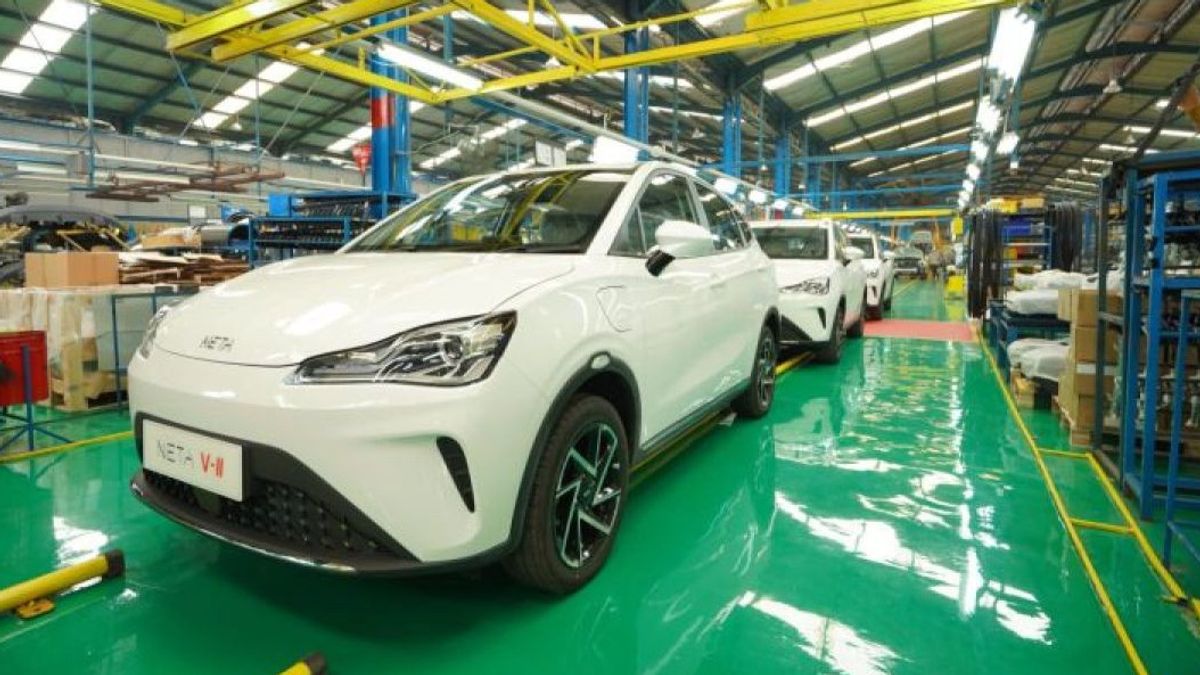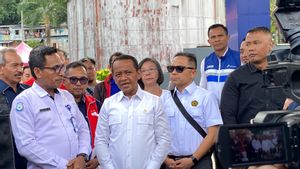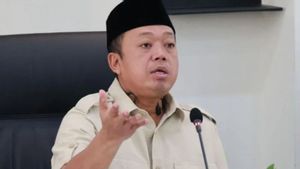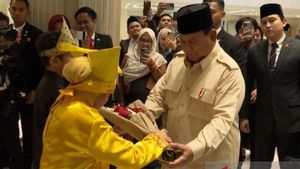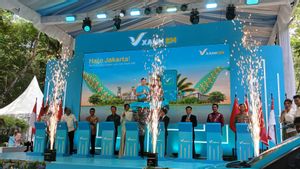JAKARTA - Minister of Energy and Mineral Resources (ESDM) Bahlil Lahadalia is optimistic that Indonesia will be the main determinant factor in the global electric car industry, thanks to the wealth of natural resources.
"Now that the world is talking about green energy and green industry, Indonesia has a comparative advantage that is not widely owned by other countries," Bahlil said at the Repnas National Conference & Awarding Night activity in Jakarta, quoted from Antara, Tuesday, October 15.
Bahlil explained that Indonesia's comparative advantage is the world's nickel reserves. Where in 2023 according to American Geological data, Indonesia has 20 percent of nickel reserves in the world.
"But four months ago the American Geological data said that our world nickel reserves were 40 to 45 percent," he said.
The Minister of Energy and Mineral Resources explained that nickel is a key component in the production of electric vehicle batteries, which are now the world's focus along with the shift from fossil energy to renewable energy.
Moreover, added the Minister of Energy and Mineral Resources, currently almost all of the world talks about electric cars, leaving fossil fuels behind.
He mentioned that 60 percent of the raw materials for electric cars are components of the car, while 40 percent are the batteries. In terms of battery components consisting of four, namely manganese, cobalt, lithium and nickel.
"Of the four, 80 percent of nickel, now we in Indonesia have three reserves, nickel, manganese, cobalt, which we don't have lithium," he said.
He said that with large reserves of nickel, manganese and cobalt, Indonesia is one of the strategic countries in the global supply chain for the electric vehicle industry and green energy technology.
"So, people in this world will definitely use electric cars depending on the raw materials for nickel, cobalt, the manganese of the Republic of Indonesia," said Bahlil.
Bahlil also revealed that Indonesia had taken steps by stopping exports of nickel oren. However, Indonesia's move to stop exports of raw materials is to face international pressure, especially because Indonesia has a very large nickel reserves, reaching 40-45 percent of the world's reserves.
"Now why do people hit us? In order to consider changing policies to continue to allow exports (nickel ore)," said Bahlil.
Previously, Coordinating Minister for Maritime Affairs and Investment (Menko Marves) Luhut Binsar Pandjaitan emphasized that the presence of a lithium battery anode material factory in the Special Economic Zone (KEK) in Kendal Regency, Central Java, would make Indonesia respected in the world.
SEE ALSO:
"So I am sure that in the not long term the export of downstream derivatives will increase significantly. And more than that, there are no longer people who take Indonesia lightly that Indonesia can be regulated by anyone," Luhut said in his remarks on the sidelines of the inauguration of the factory monitored online at the Presidential Secretariat Youtube. from Jakarta, Wednesday 7 August.
According to Luhut, the existence of a factory that is capable of producing battery anodes as much as 80 thousand tons per year will compete with China, which currently produces 100 thousand tons per year.
"Indonesia is a big country, a country that has a character, a country that can say yes, and a country that can say no," said Luhut.
The English, Chinese, Japanese, Arabic, and French versions are automatically generated by the AI. So there may still be inaccuracies in translating, please always see Indonesian as our main language. (system supported by DigitalSiber.id)
